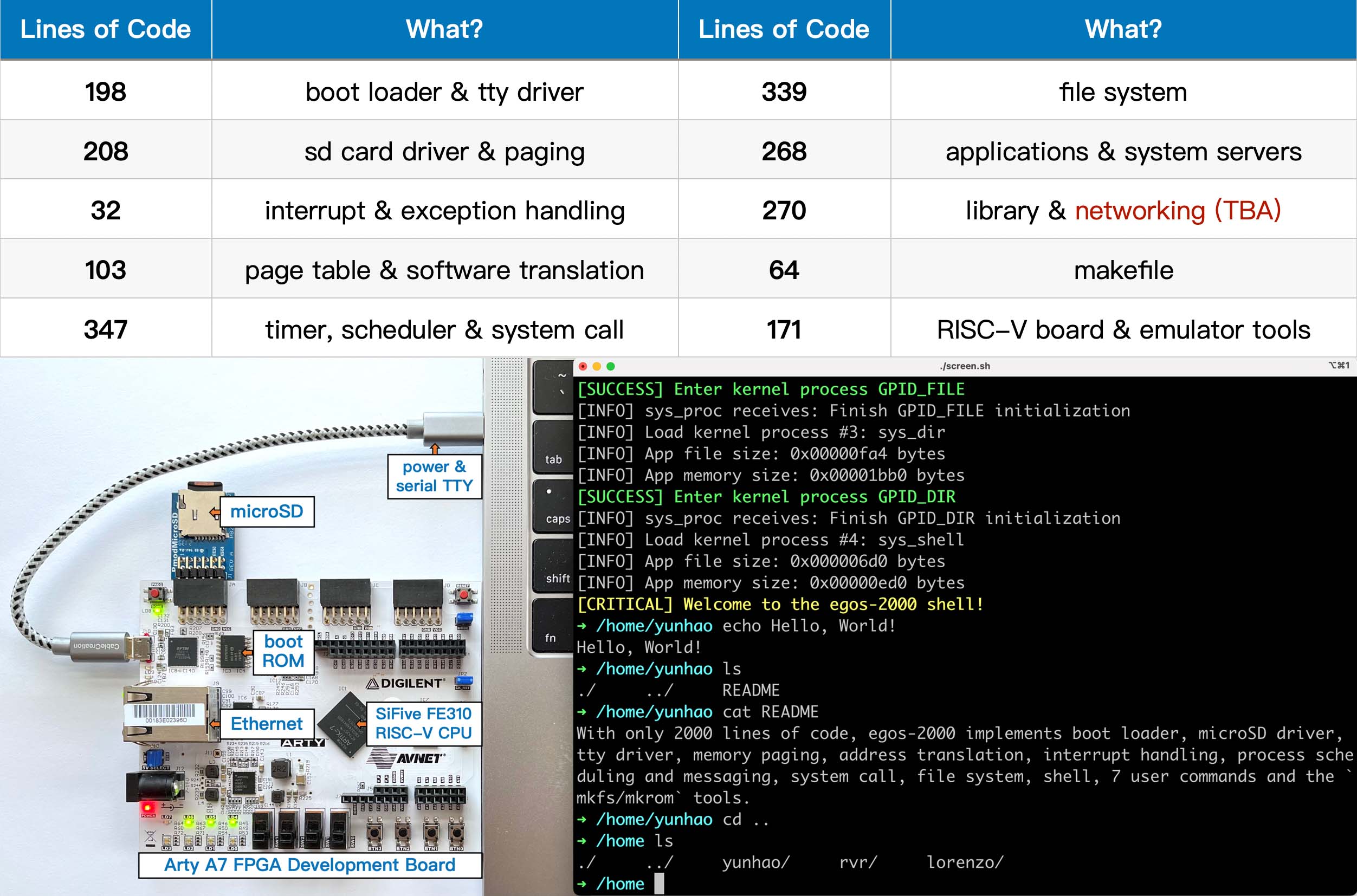This project's vision is to help every college student read all the code of an operating system.
With only 2000 lines of code, egos-2000 implements every component of an operating system for education. It can run on a RISC-V board and also the QEMU software emulator.
 Note: cloc was used to count the lines of code.
The command below uses
Note: cloc was used to count the lines of code.
The command below uses cloc to count LOC of the whole repo, excluding text documents.
> cloc egos-2000 --exclude-ext=md,txt
...
github.com/AlDanial/cloc v 1.94 T=0.05 s (949.3 files/s, 62349.4 lines/s)
-------------------------------------------------------------------------------
Language files blank comment code
-------------------------------------------------------------------------------
C 37 510 665 1579
C/C++ Header 10 68 105 285
Assembly 4 6 31 72
make 1 12 0 64
-------------------------------------------------------------------------------
SUM: 52 596 801 2000 (exactly 2000 lines)
-------------------------------------------------------------------------------We use egos-classic and egos-2000 as our teaching OS at Cornell. They both adopt a 3-layer architecture.
- The earth layer implements hardware-specific abstractions.
- tty and disk device interfaces
- interrupt and memory management interfaces
- The grass layer implements hardware-independent abstractions.
- processes, system calls and inter-process communications
- The application layer implements file system, shell and user commands.
The definitions of struct earth and struct grass in egos.h specify the interfaces of these layers.
For compiling and running egos-2000, please read USAGES.md.
The RISC-V instruction set manual introduces the privileged ISA. The SiFive FE310 manual introduces the memory map, especially the GPIO, UART and SPI bus controllers. This document further introduces the teaching plans, architecture and development history of egos-2000.
For any questions, please contact Yunhao Zhang.
Many thanks to Robbert van Renesse, Lorenzo Alvisi, Shan Lu and Hakim Weatherspoon for supporting this project. Many thanks to Meta for a Meta fellowship. Many thanks to all CS5411/4411 students at Cornell over the years for helping improve this course.